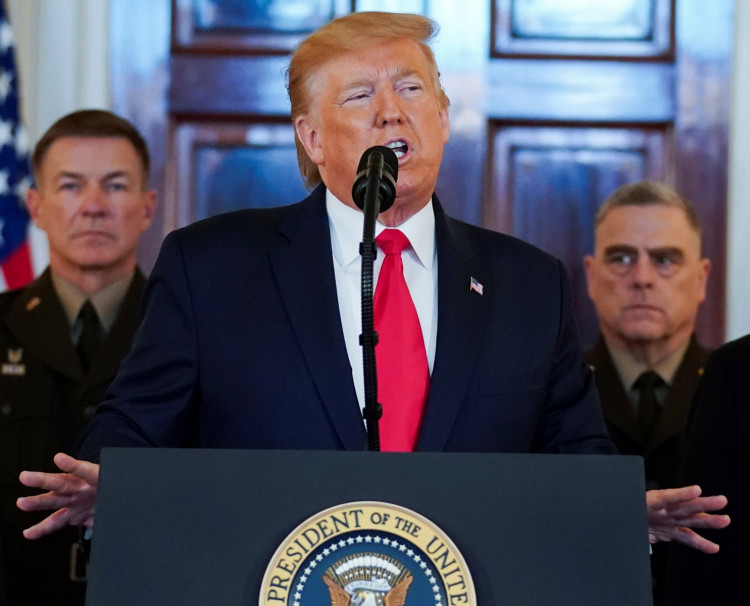The House of Representatives on Thursday passed a concurrent resolution curbing president Donald Trump's power to wage war against Iran while giving Congress more oversight of his military actions against that country. The measure was approved 224-194 on a largely party-line vote.
The resolution also calls for Trump to stop military force against Iran within 30 days if he doesn't have congressional approval. The concurrent resolution means Trump can't veto it. On the other hand, the resolution doesn't carry the force of law.
Nevertheless, House Speaker Nancy Pelosi (D-CA) said Thursday the resolution has "real teeth" to check Trump.
"We must keep the American people safe," said Pelosi on the House floor ahead of the vote. "The House will pass a war powers resolution to limit the president's military actions regarding Iran. Congress is reassuring our long-established oversight responsibilities as we mandate that if no further congressional action is taken, the administration's military hostilities with regard to Iran must end."
Rep. Elissa Slotkin (D-MI) introduced the House resolution. Sen. Tim Kaine (D-VA) introduced a similar resolution in the Senate.
The vote to curb Trump's power to wage war is part of a stubborn effort by Democrats and some Republicans in Congress to reassert the sole authority vested by the U.S. Constitution in the Congress to declare war.
Congress has complained Trump didn't provide advance notice of the assassination of Iranian major general Qasem Soleimani as required by the War Powers Resolution. The administration met the 48-hour deadline required by the War Powers Resolution to notify Congress after the assassination but the document was classified and no public version was released.
Trump's order to assassinate Soleimani on January 3 in Iraq again ignited the contentious issue of presidents not warning Congress before taking military action against another country or deploying U.S. troops abroad.
Article 1 Section 8 of the U.S. Constitution limits the President's authority in the use of force without a declaration of war by Congress. On the other hand, the War Powers Resolution of 1973 is a federal law intended to check the president's power to commit the United States to an armed conflict without the consent of Congress.
It provides the president can only send the U.S. Armed Forces into action abroad by a declaration of war by Congress; by a "statutory authorization," or in case of "a national emergency created by attack upon the United States, its territories or possessions, or its armed forces."
House Speaker Nancy Pelosi on January 5 said the House this week will introduce and vote on a war powers resolution to limit Trump's military actions regarding Iran. In a letter to House Democrats, Pelosi described the Trump-ordered airstrike that killed Iranian major general Qasem Soleimani as "provocative and disproportionate." She contends it has "endangered our service members, diplomats and others by risking a serious escalation of tensions with Iran."






